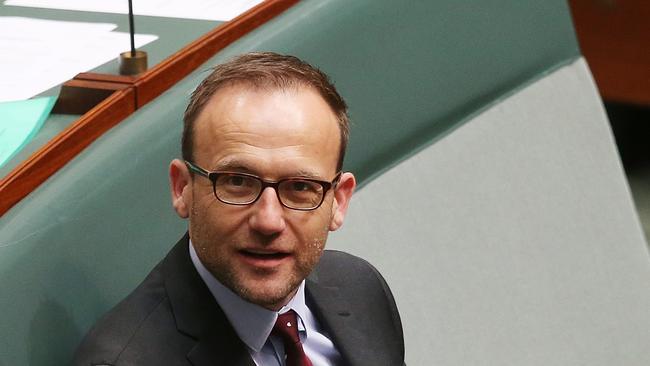Australian Energy Council welcomes ACCC power report
Greens acting leader Adam Bandt said that the ACCC report showed that treating electricity like a stockmarket had failed.

Greens acting leader and energy spokesman Adam Bandt said that the ACCC report showed that treating electricity like a stockmarket had failed, but that called for more of the same in the vain hope of a different outcome.
Mr Bandt also said the government must rule out the ACCC’s proposals to axe support for rooftop solar and to provide new public funds to gas and coal-fired power stations
“Electricity is an essential service and bringing in more companies to make more money out of selling it won’t cut power bills,” Mr Bandt said.
“The Government must immediately rule out this Trump-like proposal to cut support for rooftop solar and instead provide new subsidies for gas and coal-fired power stations.
“To bring down power bills and cut pollution, we need more renewable energy, not less.
“If big industrial companies are to get finance for reliable, low cost power it should be for clean, cheap renewable energy, not dirty old coal.”
The energy industry’s peak body welcomed the ACCC report, acknowledging that there were changes which could be made by industry to improve affordability.
The Australian Energy Council — representing the 21 major electricity and downstream natural gas businesses operating in Australia’s energy market — said the ACCC report underlined the complexity of the market and “reality that there is no silver bullet”.
“The ACCC acknowledges that previous approaches to the design of policy and regulation over a decade have pushed up prices for households and businesses,” AEC chief executive Sarah McNamara said.
“The energy industry acknowledges that consumers find the retail market confusing and that is why we have been working with regulators at both the state and federal level to make energy offers easier to understand.
“There are changes the energy sector can make to improve customer outcomes.
“The energy industry has also been dealing with more than a decade of energy policy uncertainty that has had an adverse effect on much needed investment in the wholesale market.
“The national energy guarantee can deliver this critical investment in the energy sector.”
The council called for consultation with industry to avoid “unintended consequences”, particularly where recommendations involving market intervention are concerned.
“Such proposals must not unintentionally undermine the commercial functioning of the wholesale market, which can put taxpayer funds at risk and deter future private investment,” Ms McNamara said.
The Australian Chamber of Commerce and Industry said it had long argued energy prices must come down and welcomed the ACCC report.
“As recently as yesterday we were hearing of businesses that were having to choose between paying their power bills and hiring more people — that is an utterly unsustainable situation,” Australian Chamber CEO James Pearson said.
Mr Pearson gave preliminary backing to the recommendations, particularly those concerning improved transparency and competitiveness of retail offers, greater contract transparency and giving the regulator “sharper teeth”.
“Costs must come down. That’s the bottom line for business and households,” Mr Pearson said.
The Minerals Council backed the recommendation that the government underwrite long-term energy contracts to secure private investment in new low-cost power generation.
“A diverse energy mix will achieve lowest-cost, reliable, low-emissions, sustainable energy for Australia,” CEO Tania Constable said.
“The ACCC has recognised the impact on wholesale energy prices arising from the closure of older and larger generation assets and has recommended a role for government in underwriting longer-term contracts for large commercial and industrial users.
“Secure power supply agreements would enhance the opportunity for private sector financing of a new coal or gas plant in Australia capable of delivering least-cost power 24/7.
“Adopting the ACCC’s recommendation to address this policy gap would benefit all energy consumers — particularly Australian industry including the world-class mining sector, which uses more than 11 per cent of Australia’s power.”






